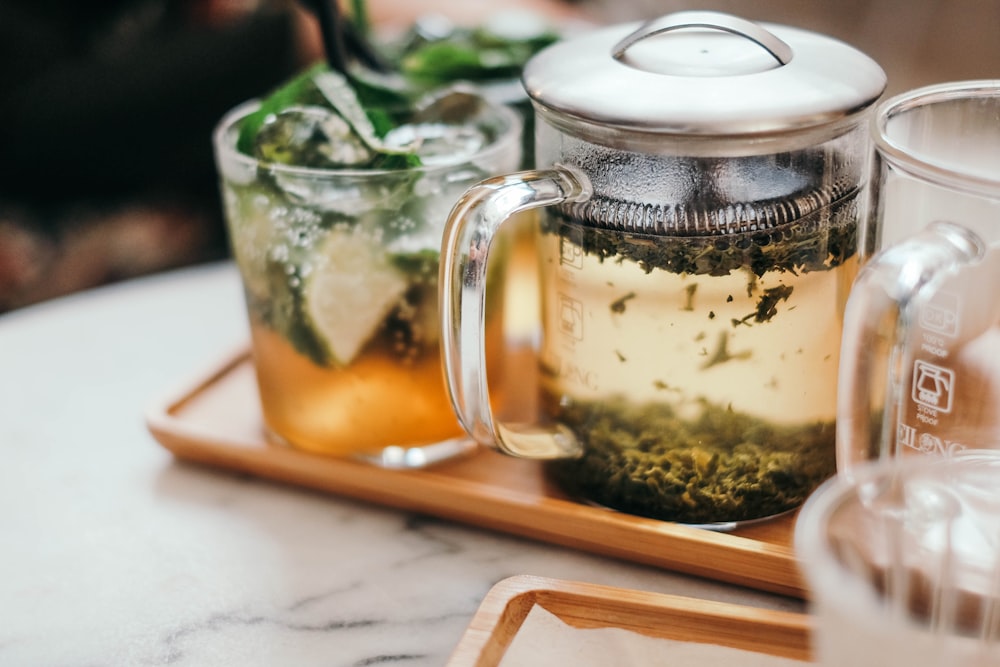Few things are more frustrating than waking up after a night of poor or no sleep. Sleep is intricately linked to every health benefit out there (Source). Some years ago, I struggled with sleeping through the night. Being a devoted morning Moringa drinker, I knew that Moringa had potential sleep benefits, but it left me confused as I typically consumed it in the morning for an energy boost.
That got me thinking, what if I shifted my Moringa routine to the night? It couldn’t hurt much since I was already struggling with sleep issues! The results? Continue reading to learn more!
Does Moringa Help With Sleep?
Moringa is a rich source of Tryptophan, a key player in promoting better sleep. Tryptophan facilitates the production of serotonin and melatonin, both crucial for enhancing total sleep time, duration of deep sleep (REM), and the overall quality of sleep. By incorporating Moringa into your routine, you not only promote better sleep but also contribute to achieving a restful night.
Discover more about the wonders of Moringa powder, its fantastic benefits, and how it can be your ally in ensuring a good night’s sleep in the detailed information provided below.
How Does Moringa Help You Sleep?
Moringa powder helps you sleep due to its unique amino acid profile. Moringa powder has 18 different kinds of amino acids (Source):
- Threonine
- Lysine
- Leucine
- Isoleucine
- Phenylalanine
- Valine
- Methionine
- Tryptophan
- Histidine
- Proline
- Tyrosine
- Aspartate acid
- Glycine
- Arginine
- Alanine
- Glutamate acid
- Serine
- Cysteine
The extensive list of Moringa’s effects reveals that some of its benefits may indirectly influence sleep. Take Alanine, for instance, known for its blood sugar and anti-inflammatory properties (Source). Less joint pain, as a result, could contribute to a more restful sleep. While Moringa powder offers a multitude of advantages, this article zeroes in on the primary contributor to direct sleep effects and alleviating sleep deprivation— the pivotal amino acid, tryptophan, which we will mainly explore.
What is Tryptophan
Tryptophan is an essential amino acid, implying that our bodies are unable to produce it independently. The sole source of this amino acid is through our diets. The primary function of this amino acid is to aid in the production of melatonin and serotonin which regulate the sleep-wake cycle. (Source)
For many people who are sleep deprived, the common issue is simply they do not have sufficient intake of tryptophan in their diet.
To get a complete guide of Moringa, check out our post below:
Moringa and Tryptophan
Elevating tryptophan levels through the consumption of tryptophan-rich foods may not directly lead to a significant increase in melatonin or serotonin levels. The challenge lies in the blood-brain barrier, as the body is highly selective about what substances can pass through to the brain. Despite the intricacies involved, a number of scientific studies delve into this aspect.
While not every milligram of Tryptophan may be absorbed by the brain due to the blood-brain barrier, some nutrients, including Tryptophan, manage to pass through. The effects of increasing Tryptophan in your diet may take some time to become noticeable. Numerous studies have indicated that Tryptophan does influence the production of serotonin and melatonin, and in turn impacting sleepiness (Source, Source).
Remarkably, Moringa not only contains Tryptophan but also has higher levels of it compared to most meats!
Tryptophan Table Resource
Moringa Tryptophan contents versus some very famous foods:
| Food | Amount of Tryptophan (mg) |
| Moringa (100g dried leaf powder) | 425mg |
| Chicken Breast (6oz) | 687mg |
| Leaner Pork (6oz) | 627mg |
| Salmon (6oz) | 570mg |
| Turkey (6oz) | 488mg |
| Milk (16 oz) | 211mg |
When is the Best Time to Take Moringa for Sleep?
For a soothing bedtime routine, we recommend preparing a simple Moringa tea without honey or sweetener. After a challenging day, nothing beats the relaxation of sipping on a warm tea. Keep it uncomplicated for the best results.
A straightforward Moringa nighttime tea recipe involves boiling Moringa leaves.
Place the Moringa leaves inside an infuser and pour hot water into a glass. Once you observe a light green color and the water has cooled, it’s ready to drink.
While many add honey to their Moringa teas, it’s advisable for morning consumption due to potential blood sugar spikes. For a nighttime tea, consider adding lime to your Moringa for a refreshing twist. Simply cut a lime in half and squeeze it into your Moringa nighttime tea. This adds a burst of flavor without introducing additional sugar!
This combo is both simple and delicious, and a super-easy way to settle into the night. Relevant Viewing:
Can You Take Moringa at Night?
Now, we know that Moringa is loaded with Tryptophan, a key player in the production of serotonin and melatonin, let’s dive into how these components influence the sleep cycle, particularly the Circadian Rhythm. Melatonin, essentially a sleep signal, informs your body that it’s time to unwind. According to studies, a boost in melatonin availability, facilitated by Moringa, correlates with enhanced PSG measures, including increased total sleep time, improved REM effectiveness, and prolonged stages of the sleep cycle (Source).
Benefits of Drinking Moringa Tea Before Bed
If you’re struggling with either drifting off to sleep or maintaining a restful night, here’s a friendly tip: consider indulging in a soothing cup of Moringa tea before bedtime. Crafting a Moringa tea takes around 5 minutes and holds the potential to revolutionize your sleep experience. Also, cultivating Moringa leaves can be an enjoyable and rewarding gardening pursuit. Picture waking up tomorrow feeling truly refreshed, operating at peak mental capacity, and prepared to conquer the day ahead. Moringa might just be the secret ingredient to transform your sleep routine.
Moringa powder doesn’t just address issues like poor sleep, sleep apnea, and immediate sleep concerns; its positive impact extends to various aspects, including your immune system and nervous system. It’s a holistic solution that promises a good night’s sleep and contributes to overall well-being. That sounds like a fantastic deal to me, doesn’t it?
Conclusion
At Morning Gardens, we believe that the combination of Moringa Oleifera and sleep is a winning duo. The versatility of this superfood extends beyond sleep, positively impacting energy levels, cognitive function, digestion, and more. We hope to have persuaded you to incorporate this fantastic plant into your routine. Give it a try next week and experience faster sleep onset and improved sleep quality.
Frequently Asked Questions
How Long Does It Take For Moringa to Start Working
Moringa’s long-term effects can take a couple of weeks, but some of the shorter effects can be seen within a couple of hours. This is because the body can break down the nutrients within Moringa shortly after ingestion. We have a full post on this here.
Benefits of Drinking Moringa Tea Before Bed
Drinking Moringa tea before bed increases relaxation, hydration, better overall sleep, and improved dreams. Many of our readers have seen aspects of their insomnia eliminated by drinking Moringa tea before bed.
Does Moringa Relieve Stress?
Moringa is one of the strongest superfoods on the planet. One of the key benefits of taking Moringa daily is the reduction of stress and anxiety.

For years now, Moringa has been a daily consumption in my life, incorporated in various forms such as capsules, food recipes, and soothing teas. Initially, my daughter and I embarked on this journey as an experiment, but as time went on, I delved deeper into its remarkable potential and unearthed the unlimited benefits it offers for our well-being and health. I got motivated by how much it positively impacted me and decided to share my insights about Moringa’s profound impact on health and overall living through my blog posts.





